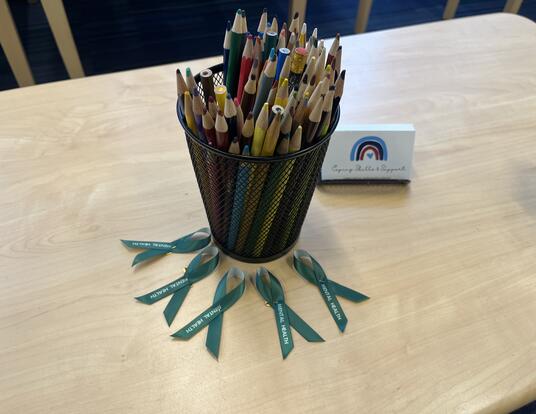B-2 B-Well: Fostering Financial Wellness
Top Tips for Graduate Students

Educational loans can be confusing, crunching numbers anxiety-inducing, and budgeting for the next month is hard enough, never mind for the next few years. When thinking about finances and feeling stressed about money have a negative impact on your emotional health, it can help to focus on financial wellness. After all, graduate school is a major investment. You owe it to yourself to understand your finances so you can build a stable future.
Tanya Tanaro, vice president of education & consumer lending at the Harvard University Employee Credit Union (HUECU), has important advice for cultivating financial wellness in graduate school. She offers three important tips that can benefit those from a wide range of backgrounds and resources.
Learn to Identify Potential Potholes
Tanaro’s biggest piece of advice for all students is to establish a solid foundation in financial literacy. Being unsure about what to watch out for can leave you vulnerable to financial potholes. Fortunately, HUECU offers many invaluable workshops and powerful resources to support students on their financial wellness journeys. (Be sure to check the lists at the end of this article.)
A great first step is to think about what your personal challenges might be, your program of study, how long it will take to complete, and your earning potential. “Once you know those details,” Tanaro says, “you can start creating a financial plan that is accurate to your true living expenses and tailored to your needs.”
Think Differently About Debt and Credit
Debt often comes with negative connotations. Tanaro says that reframing your perspective on borrowing can be instrumental in better managing it.
"Debt and loans aren't necessarily bad," she adds. "They can serve as effective tools for advancing your education, career, and ability to participate in the economy. They become problematic when excessive borrowing leads to an inability to repay.”
Tanaro suggests that students ask if incurring some debt now can enhance their quality of life in the future. Don’t underestimate the impact of education on opportunities and earning potential but do learn how interest rates work and what benefits may be associated with your loan or financial institution, such as discounts for auto-payment, or options for forbearance and deferment in the case of financial hardship or furthering your studies.
“Getting this information ahead of time is critical,” Tanaro says. “Any lender you work with should be willing to counsel you and will have resources you can tap into. Be curious and ask questions.”
Tanaro points out that student loans can also help establish credit—as long as payments are regular and on time—which is especially important for international students planning to stay in the US.
Debt and loans aren't necessarily bad . . . They become problematic when excessive borrowing leads to an inability to repay.
Establish Healthy Routines Ahead of Time
Tanaro says now is the time to develop financial habits that can pay dividends later. Get into the routine of paying whatever you can on your loans while you are still in school. Deferment can seem like a great idea in the short term, but the more you pay now, the less your interest will capitalize and add to what you owe, making your loan more affordable.
When you graduate, find out what loan or education-related benefits potential employers offer. Some organizations provide employee sponsorships, loan repayment benefits, and other financial resources that can help you pay off your student loan debt faster. Leverage those benefits.
Finally, Tanaro encourages students to use debt wisely while in school—and throughout their lives. “Establish a good mix of credit,” she says. “Although building your credit score and profile isn’t an exact science, it helps to have a mix of tradelines, such as student loans, credit cards, auto loans, and mortgage accounts. Another important factor is the length of credit history on your tradelines and on-time payments. If you plan to take out loans in the future, your lender will look closely at your credit profile, score, and your debt as it relates to your income. So, having a credit card, using it regularly, and paying it off monthly is very smart.”
HUECU is here to help students with these and other important steps toward financial wellness. Connect with a staff member directly, or, if you haven’t already, become a member and take advantage of the following credit union programs:
- Thrive Financial Wellness helps HUECU members improve their financial literacy with free workshops and an informative blog.
- HUECU partner GreenPath Financial Wellness provides free budget, debt repayment, credit, and federal student loan counseling for credit union members.
- HUECU calculators can help you crunch the numbers on savings, student loans, mortgages, and other credit instruments.
Tanaro also recommends the following resources, available to all Harvard Griffin GSAS students:
- Annualcreditreport.com provides free annual credit reports to help protect against fraud.
- Nerdwallet is a great source for help choosing the right financial products.
- Studentaid.gov is an official US government website that provides valuable information for anyone with a federal student loan.
Until next month, take care of yourselves and each other. And remember to visit the Office of Student Services in B-2 to be well!
Get the Latest Updates
Join Our Newsletter
Subscribe to Colloquy Podcast
Simplecast





